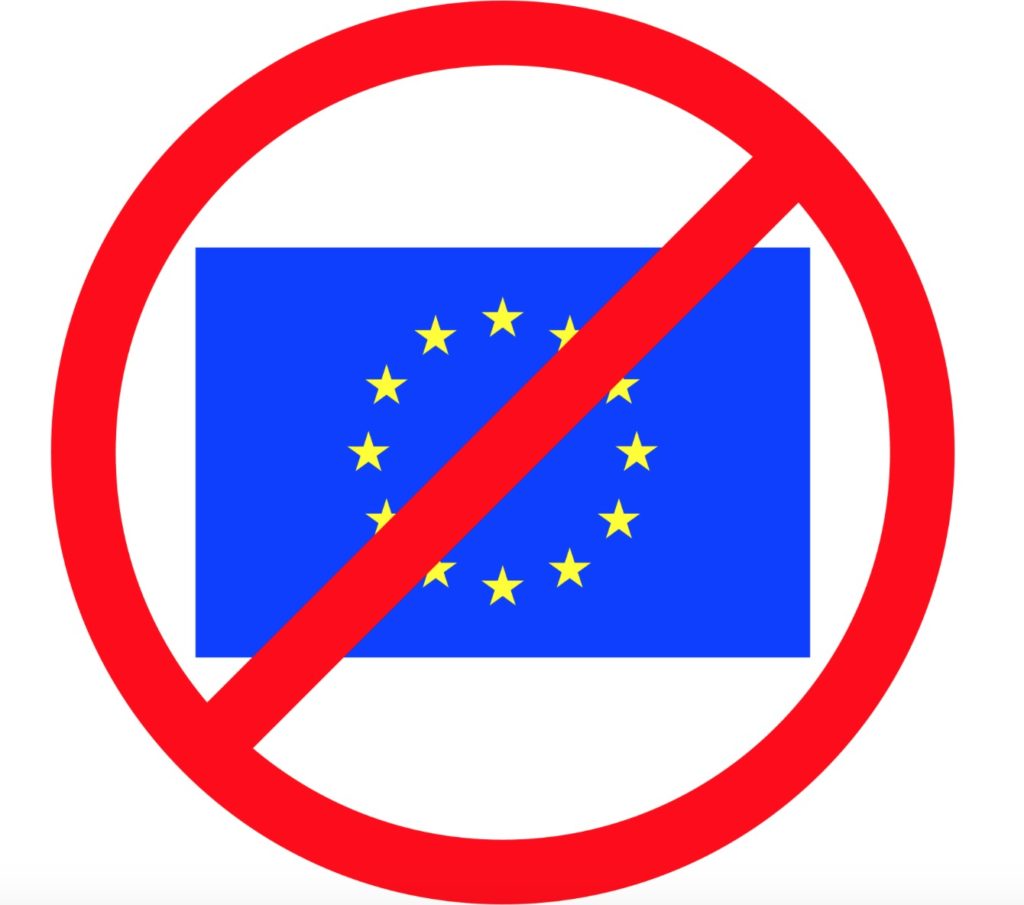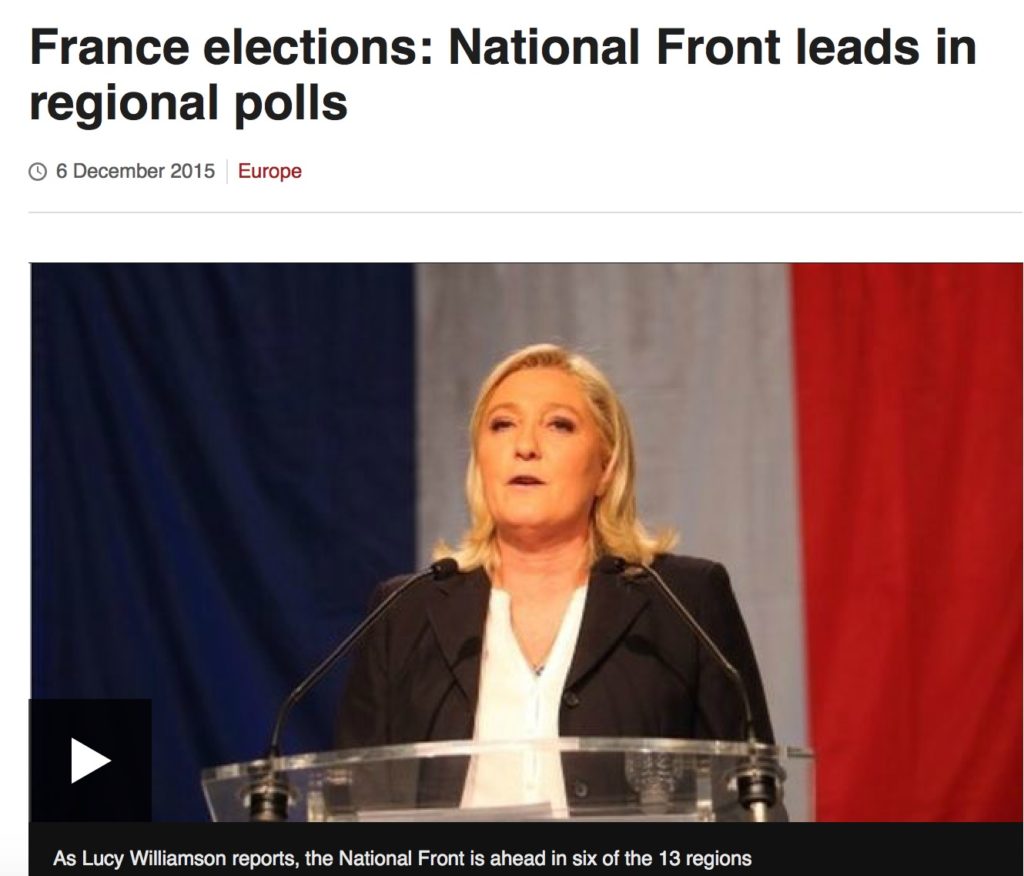
Martin Schulz is the head of the European Parliament, and he’s very worried about the future of the EU. Indeed, he’s so concerned he told a German magazine that the project was at risk of falling apart. But don’t take my word for it.
From Reuters:
The European Union is at risk of falling apart and supporters must fight to keep it, the head of the European Parliament said in a German newspaper interview.
Martin Schulz told Die Welt’s Tuesday edition that the EU was in danger and that there were forces trying to pull it apart.
He was responding to a recent warning from Jean Asselborn, Luxembourg’s foreign affairs and migration minister, that the EU might break apart,
“No one can say whether the EU will still exist in this form in 10 years’ time. If we want that then we need to fight very hard for it,” Schulz said.
He was not specific about what was threatening the EU, but much of the interview was focused on the migrant crisis, which has stretched Europe’s unity and tolerance during the year.
Schulz said that the EU was not without alternatives and “could of course be reversed”, adding that other options including a Europe in which nationalism, borders and walls were prevalent.
Of course, he’s absolutely right. As I wrote recently in the post, A Message to Europe – Prepare for Nationalism:
Actions have consequences, and people can only be pushed so far before they snap. I believe the Paris terror attacks will be a major catalyst that will ultimately usher in nationalist type governments in many parts of Europe, culminating in an end of the EU as we know it and a return to true nation-states. Although I think a return to regional government and democracy is what Europeans need and deserve, the way in which it will come about, and the types of governments we could see emerge, are unlikely to be particularly enlightened or democratic after the dust has settled.
The EU is toast. There’s no doubt in my mind about it. The only question is what will come next, and how ugly will the political backlash get.
Meanwhile, on a somewhat related note, I came across a very disturbing article about how Facebook is blocking a BBC article about the success of the National Front Party in France, by deeming it “unsafe.” Of course, nobody has a clue what this means, which is apparently how Facebook likes it.
From TechDirt:
Lots of people have reasonable concerns about platforms like Facebook which not only provide an avenue for free expression — but which also have the power to suddenly decide it won’t allow certain forms of expression. Admittedly, there’s always a line to be drawn somewhere. People are happy that Facebook tries to keep out spam and scams, but it’s still worrying when it seems to want to filter out perfectly legitimate news stories. On Sunday, Nadim Kobeissi tweeted that Facebook wouldn’t allow the sharing of a BBC article on the latest political polling in France.
I wasn’t sure I believed it so I tried to post that link to my own Facebook page and got a similar message:
Now it’s possible that there’s a concern over rogue dangerous ads on the BBC site — though for many people the BBC displays no ads at all. It’s also possible that Facebook’s algorithms interpret news about the National Front party (which is politely described as “far right,” but might more accurately be described as nationalist-to-racist) as somehow dangerous. But, just the fact that Facebook is magically determining that a news story is somehow “unsafe” without giving me any details to understand why or how is tremendously concerning.
And, again, this comes just after we’ve seen American politicians calling for Facebook and others to magically determine how to block “bad” content that might inspire terrorists. And, it comes just as Google’s Eric Schmidt argued that these kinds of filters should be more common. Yet, examples like this show just how problematic the idea of these kinds of filters can be.
What’s so crazy about all of this is how benign the actual article is if you read it. Here’s what the header looks like:
It merely contains commentary on how well the anti-euro National Front Party is doing. For example:
The message from the first round of France’s regional elections is simple and unequivocal – once again the far right has come out on top.
For the third time in a year and a half, Marine Le Pen can legitimately say that her National Front is the country’s most popular party.
It is an astonishing performance for a party that until very recently was regarded as beyond the pale.
The Paris attacks will have played a part in this but it would be wrong to ascribe Ms Le Pen’s triumph solely to fears of terrorism.
Her party has been on a steady upward slope for four years. The problems that worry voters are as much economic and social as they are security-related.
Is Facebook trying to intentionally keep its users in the dark as it relates to the changing dynamics of European politics, or was this just a harmless error? Either way, the company owes its users an explanation.
For related articles, see:
A Message to Europe – Prepare for Nationalism
Does the Migrant Crisis Represent the End of the European Union?
A Very Disturbing and Powerful Post – “Get Your Loved Ones Off Facebook”
In Liberty,
Michael Krieger
Donate bitcoins: 35DBUbbAQHTqbDaAc5mAaN6BqwA2AxuE7G
Follow me on Twitter.





The EU, UN, and other organizations that use pseudo-science as propaganda are in danger of coming apart.
The UN’s COP-21 Conference on AGW in Paris is one example.
Another example is this response to the open letter a MP of the European Union wrote to a UK physicist on the subject of AGW:
https://rogerhelmermep.wordpress.com/2015/12/08/an-open-letter-to-professor-michael-merrifield-of-nottingham-university/#comment-36338
Deja vu ……
1920s/2000s – high inequality, high banker pay, low regulation, low taxes for the wealthy, robber barons (CEOs), reckless bankers, globalisation phase
1929/2008 – Wall Street crash
1930s/2010s – Global recession, currency wars, rising nationalism and extremism
Globalisation always goes in phases of expansion and retrenchment into nationalism.
We have seen how the current globalisation works.
In the good times, prior to 2008, all we hear about is the wealth creators. How they are responsible for the boom and how they deserve to keep their rewards.
In the bad times, after 2008, the easy profits have gone and so have the wealth creators. It is up to national tax payers and national institutions (Governments and Central Banks) to sort out the mess.
The profits are privatised and the losses are socialised.
Unconditional bailouts for bankers and austerity for the people.
The social contract has broken down with a rapacious, global elite always looking to make more money at the expense of everyone else.
We cannot tax the rich any more as they will go abroad so those at the bottom have to suffer with austerity as there is no money.
The people know that if more people arrive, then the budget will have further to go and more cuts will be necessary.
A breeding ground for retrenchment into nationalism.
With today’s EU, the rise of nationalism can only be expected.
The best argument against the EU is the EU itself.
The policies of the leaders of the EU seem to make no sense.
This is often the case when people are actually working to a hidden agenda you have not been told about.
We can see from their treatment of Greece there is no real unity in Europe at all.
The solution for Greece is the typical banker’s solution that has been used by the IMF and World Bank for decades. The World Bank did the same to South America.
We cannot admit we have leant them an amount they cannot pay back, we must lend them more to make the repayments.
Austerity almost never works for the nation, but does allow creditors to get hold of the assets of that nation.
Greece will be asset stripped and left to die the death of a thousand cuts.
They also moved Greek debt from private banks to tax payers in case they default.
French banks – 50 billion
German banks – 20 billion
There has been a banker takeover of the EU, it’s obvious.
Making people keep doing referendums until they came up with the right answer.
Removing democratically elected leaders and putting in their own people (Greece and Italy)
We must get out before our leaders have been replaced by EU technocrats.